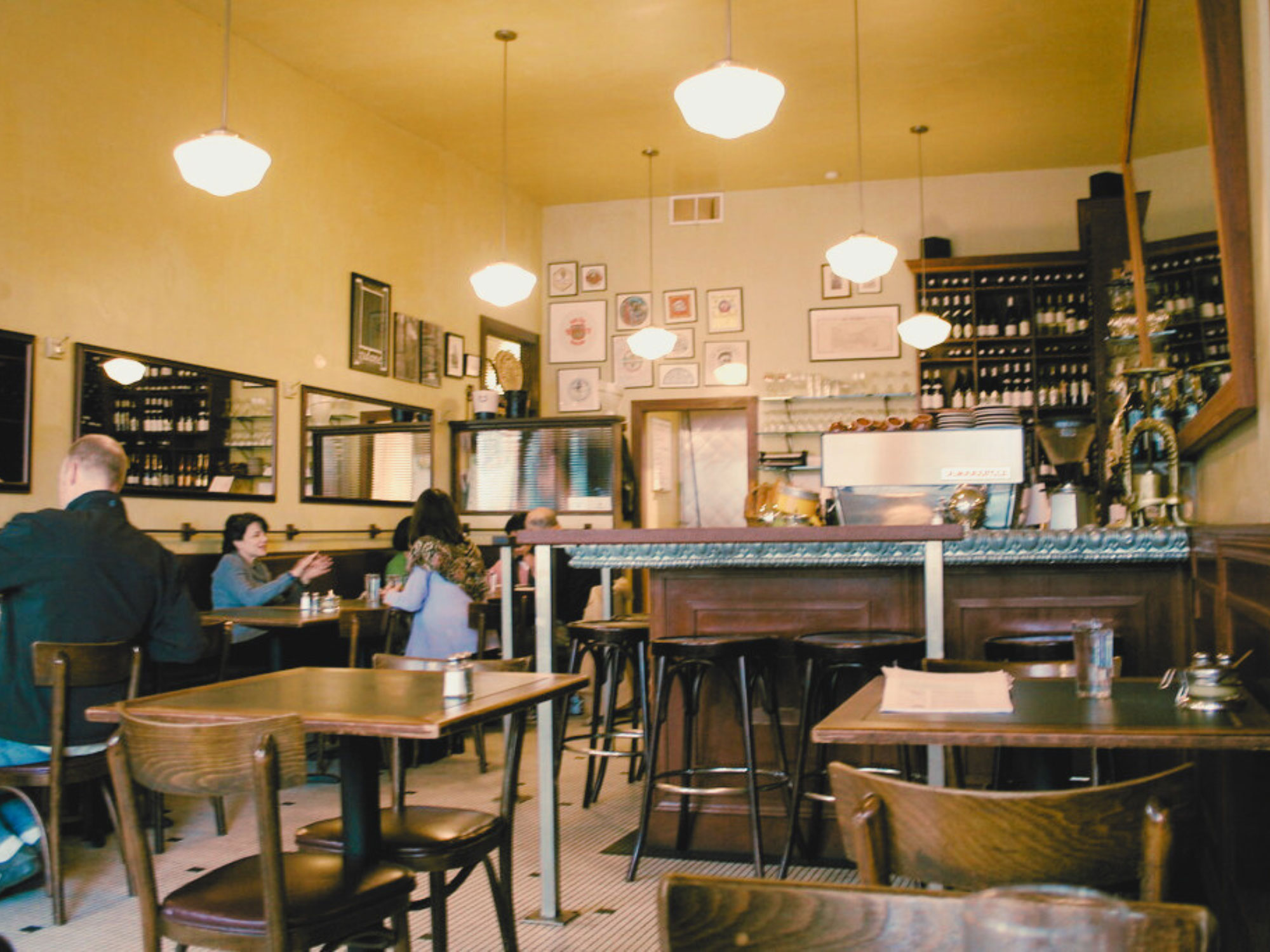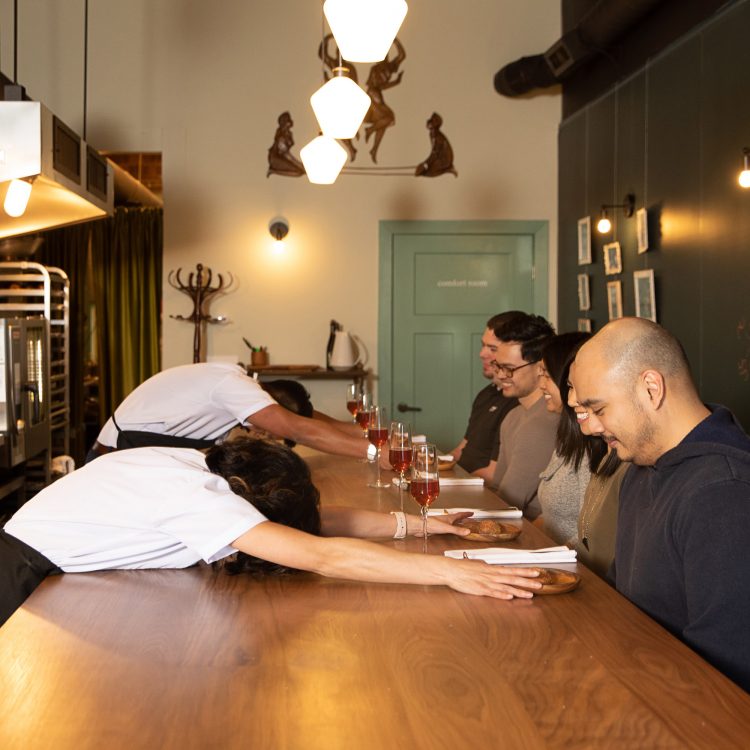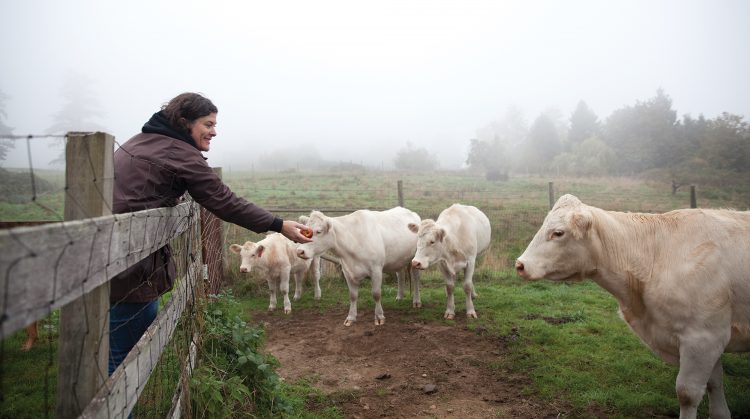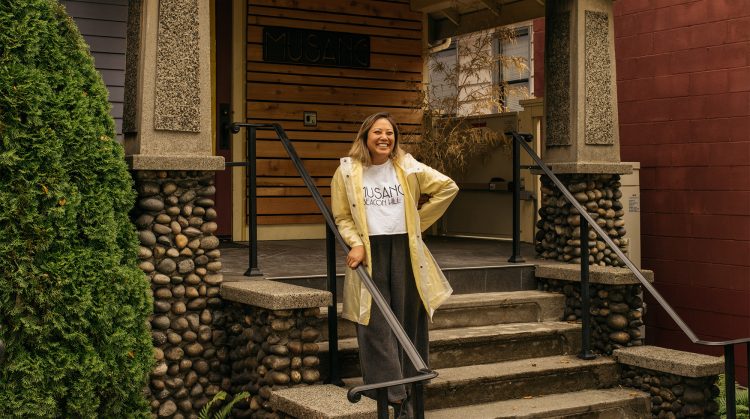Good eats Good eats Good eats
The New York Times released a list of 25 notable Seattle restaurants, and seven of them are owned by UW alumni.
By Caitlin Klask and Katura Reynolds | November 30, 2023

The University of Washington does not have a culinary school. Nutritional sciences, sure; the UW School of Public Health is ranked fourth in the world. But you can't earn a culinary arts certificate here. So why are so many UW alumni garnering national attention for their restaurants?
“What was important to realize and learn at UW was researching, and being able to dig deeper. The idea of perspective,” explained Aaron Verzosa, ’09, in a 2019 interview with UW Magazine about his restaurant Archipelago. In fact, even Maria Orosa — the Filipino food scientist who invented banana ketchup — earned a degree in food chemistry at the UW.
Last month, the New York Times published a list of 25 of Seattle’s best restaurants of the moment. They represent the creativity and dedication to detail that Verzosa, Orosa and other UW grads have shown in their cooking. We’ve rounded up the seven alumni-owned restaurants on that list.

RESTAURATEURS AMBER MANUGUID AND AARON VERZOSA HAVE COOKED UP A CULINARY JOURNEY BASED ON THEIR FILIPINO AND NORTHWEST HISTORIES AND CULTURE. Photo by Amber Fouts.
Archipelago (Aaron Verzosa, ’09; Amber Manuguid, ’09)
We’ve previously covered Archipelago and their Filipino cuisine made with Pacific Northwest ingredients. With only 12 seats in the restaurant, each guest is treated to an intimate experience over 9-12 courses. Co-owners Aaron Verzosa, ’09, and Amber Manuguid, ’09, are a married couple who incorporate storytelling in their dining experience, weaving Filipino and Northwest foods, culture and history together.
But the Archipelago experience doesn’t end there. “Identity, culture and empowerment are the three things for Archipelago. It speaks a lot to our time at UW,” says Verzosa. He and Manuguid helped create the ILAW Coalition, a partnership between Filipino American food and beverage professionals in the Pacific Northwest. (Ilaw means “light” in Tagalog.)
Bateau (Renee Erickson, ’95)
Renee Erickson, ’95, is so dedicated to good steak that she began raising her own cattle. Erickson meticulously sources what she puts on her customers’ plates, from sustainably raised oysters (a concern that has made her an advocate for ocean acidification awareness) to vegetables grown by a Whidbey Island farmer, so it only makes sense that she would eventually ranch her own cattle, right?
Bateau features a big chalkboard with available steaks of the day, and as they run out, each item is erased. But even the less popular cuts, which use as much of the animal as possible, are still delicious.

Renee Erickson feeds an apple to a white heifer on her Whidbey Island farm. Photo by Erin Lodi.
Blotto (Jordan Koplowitz, ’12)
Great things come in small packages, and great pizza comes in tiny restaurants. Blotto, a very hip pizza joint in Capitol Hill, has caught national attention for its memorable pies. Co-owner Jordan Koplowitz, ’12, who studied marketing and business at the UW, began perfecting his dough recipe during the pandemic. He started Blotto as a pop-up before partnering with Cal Hoffmann and nestling into the lower flower of a 120-year-old house near Cal Anderson Park.
If their pizza is sold out, which it often is, Blotto also sells lots of natural wines and a handful of niche local grocery products. Recently, their fall menu included a harvest season ratatouille with a large and tasty-looking crouton.
The Chicken Supply (Paolo Campbell, ’10)
Is Seattle a Filipino food destination? UW Magazine said it back in 2019, but since then, even more Filipino restaurants have popped up, like The Chicken Supply in Seattle’s Greenwood neighborhood. Chicken, of course, is their specialty, but you can also find beans and rice, collard greens, crispy potatoes and pancit on the menu. Everything is gluten free and celiac friendly, and everything sells quickly.
But unlike some other nationally-recognized restaurants, The Chicken Supply is refreshingly casual and affordable. Paolo Campbell, ’10, describes the restaurant he created with co-owner Donnie Adams: “We’re not fancy and we don’t care about courses. We cook in hopes that our food finds its way into whatever your vibe may be. Let the chicken supply you.”
Le Pichet (Jim Drohman, ’85, ’90)
Though he’s no longer at the helm of the French café in Pike Place Market, Jim Drohman, ’85, ’90, opened the restaurant in 2000 with longtime friend Joanne Herron. He studied Aeronautical Engineering at the UW and worked for five years at Boeing before a drastic career change. “Time brings wisdom, they say, and after five years at Boeing, it was clear to me that engineering was not my life’s passion. Since I spent most of my free time cooking… a career in the kitchen seemed like an obvious next step,” he wrote on his blog.
When his other French-inspired spot Café Presse closed in 2022, Drohman and Herron decided to move on and sold Le Pichet to long-time employees Michael Chick and Marcel Boulanger. They’ve maintained the “warmth, congeniality and casual élan” that Drohman strived for, and according to the New York Times, they’ve maintained a delicious menu, too.

Melissa Miranda stands outside her restaurant, Musang. Photo by Kyle Johnson.
Musang (Melissa Miranda, ’08)
You can’t talk about Seattle’s best restaurants without mentioning Musang. Melissa Miranda, ’07, is also part of the ILAW Coalition. “There is a sense of pride to be Filipino again, and that has come from food,” Miranda said in a 2019 interview with UW Magazine. “When we talk about pride, we are reclaiming it. We are giving value to not just food, but to ourselves, and to our history, and honoring the struggles that our parents went through.”
Musang is community-driven to the core. During the COVID shutdown, Miranda headed a community kitchen effort along with Kristi Brown’s Communion (another restaurant on the New York Times list) and Meesha, an Indian restaurant opened by Preeti Agarwal in 2020. They saw a need to feed their community, and they did so for free.
These days, Musang continues to serve delicious takeout and dine-in Filipino food, like Filipino spaghetti (featuring Maria Orosa’s iconic banana ketchup), short-rib kare kare and chocolate pandan cake.
The Walrus and the Carpenter (Renee Erickson, ’95)
Erickson began in the restaurant business as a UW undergrad studying painting, working at Boat Street Café on the side. By the time she was 25, the owner of the little café was ready to sell, and Erickson was ready to buy. She created a beloved restaurant out of Boat Street, but it wasn’t financially sustainable and it closed in 2015.
By that time, her 5-year-old oyster bar called The Walrus and the Carpenter had earned national attention. Known for oysters, sparkling wine and lovely shared plates that mix French and Northwest cuisines, The Walrus and the Carpenter is a Ballard institution where you’ll often find lines of customers into the parking lot.